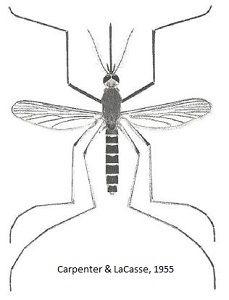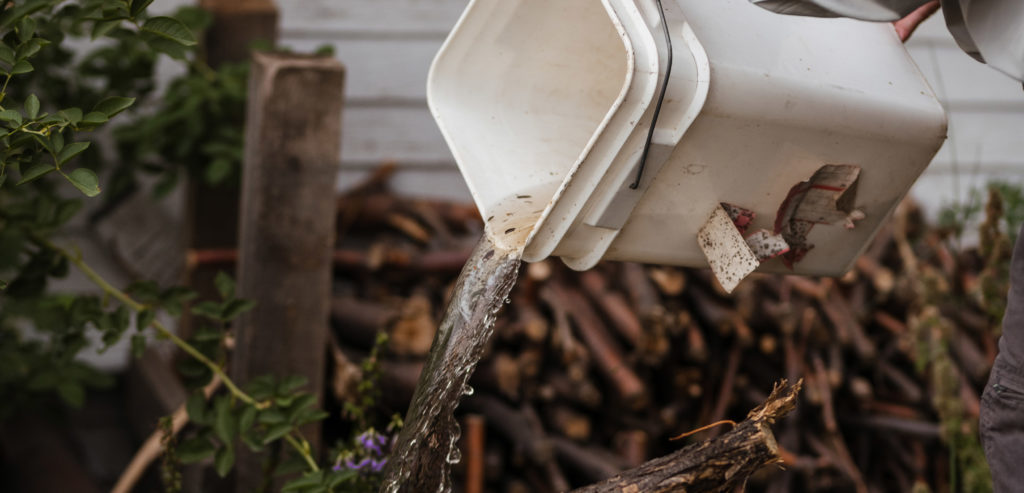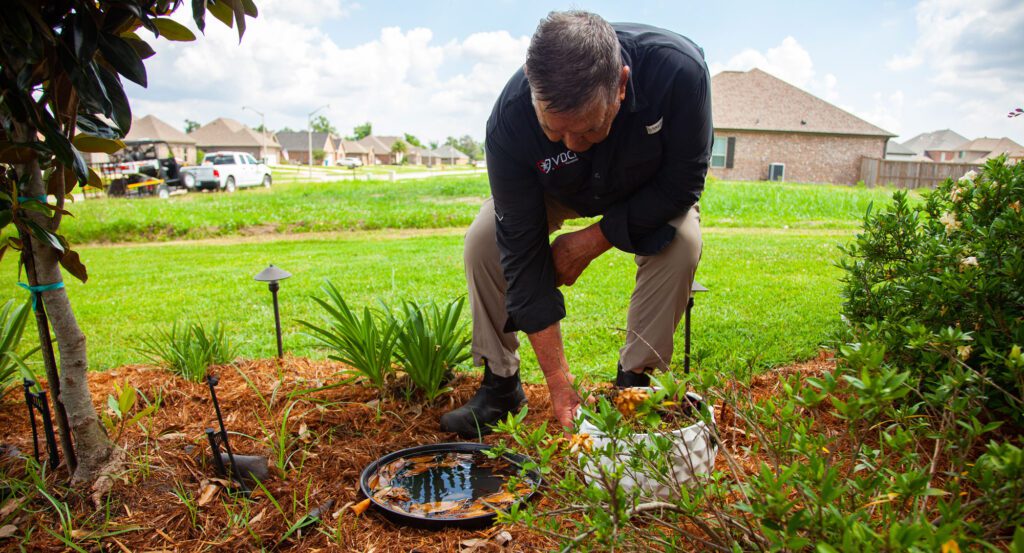Exploring The Culex Pipiens Species
 It is winter and all the mosquitoes have died, right? Well, not exactly.
It is winter and all the mosquitoes have died, right? Well, not exactly.
While many species of mosquitoes laid eggs last summer or fall and then died, others including the Northern House Mosquito, Culex pipiens, overwinter as an adult, waiting until next spring to lay their eggs. Throughout temperate zones of North America, Europe, and Asia, there may be snow on the ground outside, but these mosquitoes can still be found if one knows where to look for them.
In late summer and early autumn, these mosquitoes forego the blood meals and instead fuel up on nectar or other sugary fluids, storing it as fat in their body. Before human construction, they likely spent the winter in caves or hollow trees – protected from the worst of the winter elements. In such shelters they remain warm enough to keep from freezing to death, but cool enough that they don’t burn up all of their fat reserves before spring. Humans have provided them with additional safe winter hiding places, including culverts, barns, stables, garages, basements, and sheds. Some populations have even developed the ability to be active year-round in warmer structures such as the London Underground railway system, where they were notorious for attacking the city’s citizens who were seeking shelter in the subway tunnels during bombing air-raids of World War II. If you find a mosquito flying around your garage on a warmer-than-normal December day, or resting on the wall of your shed in the middle of winter, it is likely this species.
As mosquitoes go, the Northern House Mosquito isn’t the most spectacularly colorful or patterned, although in the right light their golden brown body scales have a somewhat bronzy reflection. Their abdomen is distinctly marked with pale-colored scales that form broad rounded banding on each segment. I’ve seen prettier insects, to be sure, but few with such a vast global distribution, found on every continent except Antarctica.

In the past, they were sometimes known as the “rain barrel mosquito” as they took advantage of that once commonly available water source as a place to lay their eggs. Culex pipiens larvae thrive in such containers of stagnant water, the more polluted with organic material, the better. If you live in the northern half of the United States and have mosquito larvae in your bird bath, rain gutters, flower pots, or nearby storm drain catch basin, it is likely to be this species.
Adult females will sometimes enter buildings where they readily bite humans, but outdoors they apparently have a preference for bird blood, especially birds associated with human dwellings such as pigeons and doves. They are competent vectors of West Nile virus, a disease mostly found in birds. This mosquito has been implicated as a primary vector that amplifies the virus each summer in the previously unexposed bird population (the disease’s “reservoir”).

In much of the country, Culex pipiens populations are the primary target of the campaign to drain backyard sources of standing water as a way to reduce the incidence of West Nile virus. Next summer, check to see that your rain gutters are flowing, and flush your bird bath every week. You just might notice a decrease in the number of mosquitoes in your yard, and will help reduce the West Nile virus risk in your neighborhood.
An important component of any successful Integrated Mosquito Management program is mosquito identification. Should you have any questions regarding mosquito identification, Vector Disease Control International (VDCI) is always available at whatever level of assistance you desire.
Contact Us to Learn More About Effective Mosquito Management Strategies:
 Since 1992, Vector Disease Control International (VDCI) has taken pride in providing municipalities, mosquito abatement districts, industrial sites, planned communities, homeowners associations, and golf courses with the tools they need to run effective mosquito control programs. We are determined to protect the public health of the communities in which we operate. Our mosquito control professionals have over 100 years of combined experience in the field of public health, specifically vector disease control. We strive to provide the most effective and scientifically sound mosquito surveillance and control programs possible based on an Integrated Mosquito Management approach recommended by the American Mosquito Control Association (AMCA) and Centers for Disease Control and Prevention (CDC). VDCI is the only company in the country that can manage all aspects of an integrated mosquito management program, from surveillance to disease testing to aerial application in emergency situations.
Since 1992, Vector Disease Control International (VDCI) has taken pride in providing municipalities, mosquito abatement districts, industrial sites, planned communities, homeowners associations, and golf courses with the tools they need to run effective mosquito control programs. We are determined to protect the public health of the communities in which we operate. Our mosquito control professionals have over 100 years of combined experience in the field of public health, specifically vector disease control. We strive to provide the most effective and scientifically sound mosquito surveillance and control programs possible based on an Integrated Mosquito Management approach recommended by the American Mosquito Control Association (AMCA) and Centers for Disease Control and Prevention (CDC). VDCI is the only company in the country that can manage all aspects of an integrated mosquito management program, from surveillance to disease testing to aerial application in emergency situations.

